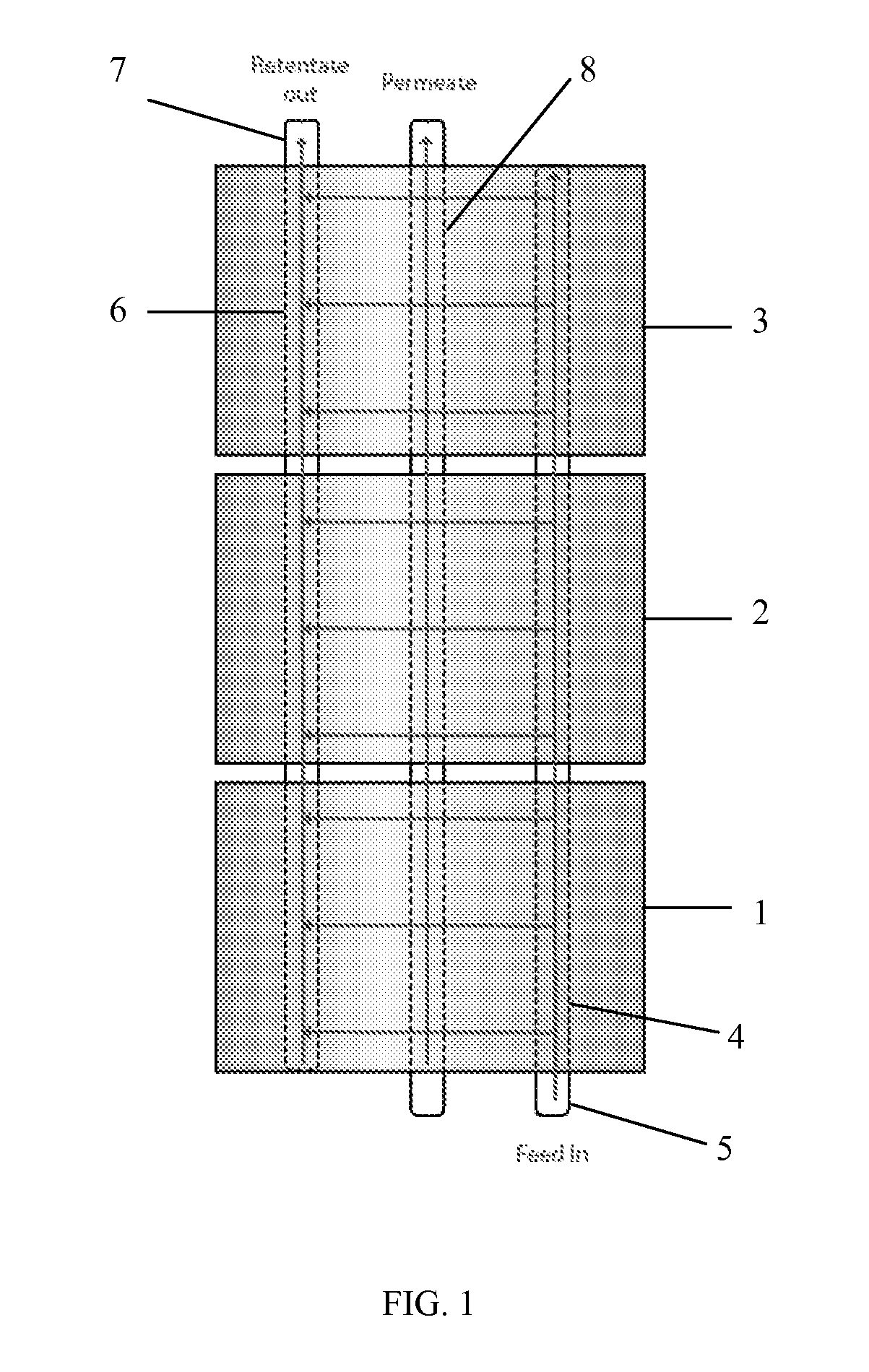Single-pass filtration systems and processes
a filtration system and single-pass technology, applied in the field of single-pass filtration systems and processes, can solve the problems of increasing the overall cost of operation compared to parallel processing, affecting the current sptff system, and lack of disposability for single-use operation
- Summary
- Abstract
- Description
- Claims
- Application Information
AI Technical Summary
Benefits of technology
Problems solved by technology
Method used
Image
Examples
example 1
A Hybrid SPTFF System for Operation of Cassettes in Parallel and / or in Series
[0123]A SPTFF model was developed to evaluate and compare conversion, permeate flow rate, and pressure drop for three cassettes staged in series and three cassettes staged in parallel. The model was based on the Pellicon® device format with 30 kD Ultracel membrane and C-screen (EMD Millipore). Experimental testing has indicated that feed flows of 0.25-0.5 LMM are typically required to achieve the target conversion or concentration. SPTFF flushing steps should be performed at higher flow rates to reduce time. Pumps used for large scale processing commonly have flow ranges of 6-10×. Given these considerations, a feed flow rate for flushing steps of 1 LMM was selected for this model. Each cassette was divided into 28 elements (˜0.5 cm each). The properties of the fluid and cassette were assumed to be constant within each element. The output of element n was used at the input to element n+1. The lower limit of ...
example 2
Effectiveness of a Cleaning Method for TFF Cassettes Employing Parallel Flushing and a Static Soak Step
[0132]A study was carried out to evaluate the effectiveness of cleaning TFF cassettes by employing a static soak step with 0.5N NaOH over 20 SPTFF re-uses of the cassettes. Pellicon® 3 C-screen mini cassettes with 30 KD Ultracel membranes were used for this study. The TFF cassettes were incorporated into a hybrid SPTFF system of the invention that was capable of being operated in series or in parallel. The cassettes were cleaned by flushing in parallel and soaking with 0.5N Sodium Hydroxide (NaOH) for 20 cycles. One additional cycle was carried out to flush the cassettes in series to simulate a SPTFF set-up where cleaning in parallel was not feasible. This was done to determine if there is any difference in the cassettes' performance recovery between flushing the cassettes in parallel and series. IgG (SeraCare Life Sciences, Inc., Milford, Mass.) was used as model feed. A full 4-ho...
PUM
| Property | Measurement | Unit |
|---|---|---|
| pore sizes | aaaaa | aaaaa |
| pore sizes | aaaaa | aaaaa |
| area | aaaaa | aaaaa |
Abstract
Description
Claims
Application Information
 Login to View More
Login to View More - R&D
- Intellectual Property
- Life Sciences
- Materials
- Tech Scout
- Unparalleled Data Quality
- Higher Quality Content
- 60% Fewer Hallucinations
Browse by: Latest US Patents, China's latest patents, Technical Efficacy Thesaurus, Application Domain, Technology Topic, Popular Technical Reports.
© 2025 PatSnap. All rights reserved.Legal|Privacy policy|Modern Slavery Act Transparency Statement|Sitemap|About US| Contact US: help@patsnap.com



